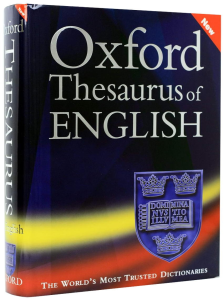- Descriere
- Caracteristici
- Review-uri (0)
In many ways Shakespeare is the founder of the modern English that we use. He has enriched the way we speak and understand our language. In order to express precisely what he had in mind he created metaphors that so perfectly expressed those things that they have become common usage.
Nevertheless, it's in the nature of language-change that some of the mediaeval words Shakespeare used have been lost to us. There are suprisingly few of them - not enough to affect the smooth flow of modern English in his texts and, in any case, we understand most of them withour explanation. Below is a dictionary of archaic words commonly used in Shakespeare's plays:
Alack: an expression of dismay, sorrow, regret.
Example from Shakespeare:
'Alack the day, she's dead, she's dead, she's dead!' - Lady Capulet on Juliet's apparent death. (Romeo and Juliet)
Cozen : to deceive, trick or cheat.
Example from Shakespeare:
'I will be hang'd, if some eternal villain,
Some busy and insinuating rogue,
Some cogging, cozening slave, to get some office,
Have not devised this slander; I'll be hang'd else.' - Emilia on realizing that Desdemona has been slandered. (Othello)
Fie : to express annoyance or disapproval - 'shame on you!', 'rubbish!' etc.
Example from Shakespeare:
' Fetch him off, I pray you; he speaks nothing but madman: fie on him!' - Olivia when accosted by Malvolio, insinuating that she has sent him a love letter. (Twelfth Night)
Nevertheless, it's in the nature of language-change that some of the mediaeval words Shakespeare used have been lost to us. There are suprisingly few of them - not enough to affect the smooth flow of modern English in his texts and, in any case, we understand most of them withour explanation. Below is a dictionary of archaic words commonly used in Shakespeare's plays:
Alack: an expression of dismay, sorrow, regret.
Example from Shakespeare:
'Alack the day, she's dead, she's dead, she's dead!' - Lady Capulet on Juliet's apparent death. (Romeo and Juliet)
Cozen : to deceive, trick or cheat.
Example from Shakespeare:
'I will be hang'd, if some eternal villain,
Some busy and insinuating rogue,
Some cogging, cozening slave, to get some office,
Have not devised this slander; I'll be hang'd else.' - Emilia on realizing that Desdemona has been slandered. (Othello)
Fie : to express annoyance or disapproval - 'shame on you!', 'rubbish!' etc.
Example from Shakespeare:
' Fetch him off, I pray you; he speaks nothing but madman: fie on him!' - Olivia when accosted by Malvolio, insinuating that she has sent him a love letter. (Twelfth Night)
Nr. pagini: 234
ISBN: 9780192806383
Format: 19x14 cm
An aparitie: 2005
Editie: Brosata/Lucioasa
Autori: Stanley Wells
Daca doresti sa iti exprimi parerea despre acest produs poti adauga un review.
Scrie un review

![Oxford - Dictionary of Shakespeare [1] Oxford - Dictionary of Shakespeare [1]](https://gomagcdn.ro/domains2/pravaliacucarti.ro/files/product/large/23848_33284.png)
![Oxford - Dictionary of Shakespeare [2] Oxford - Dictionary of Shakespeare [2]](https://gomagcdn.ro/domains2/pravaliacucarti.ro/files/product/large/23848_33285.png)
![Oxford - Dictionary of Shakespeare [3] Oxford - Dictionary of Shakespeare [3]](https://gomagcdn.ro/domains2/pravaliacucarti.ro/files/product/large/23848_33286.png)
![Oxford - Dictionary of Shakespeare [0] Oxford - Dictionary of Shakespeare [0]](https://gomagcdn.ro/domains2/pravaliacucarti.ro/files/product/medium/23848_33284.png)
![Oxford - Dictionary of Shakespeare [1] Oxford - Dictionary of Shakespeare [1]](https://gomagcdn.ro/domains2/pravaliacucarti.ro/files/product/medium/23848_33285.png)
![Oxford - Dictionary of Shakespeare [2] Oxford - Dictionary of Shakespeare [2]](https://gomagcdn.ro/domains2/pravaliacucarti.ro/files/product/medium/23848_33286.png)








